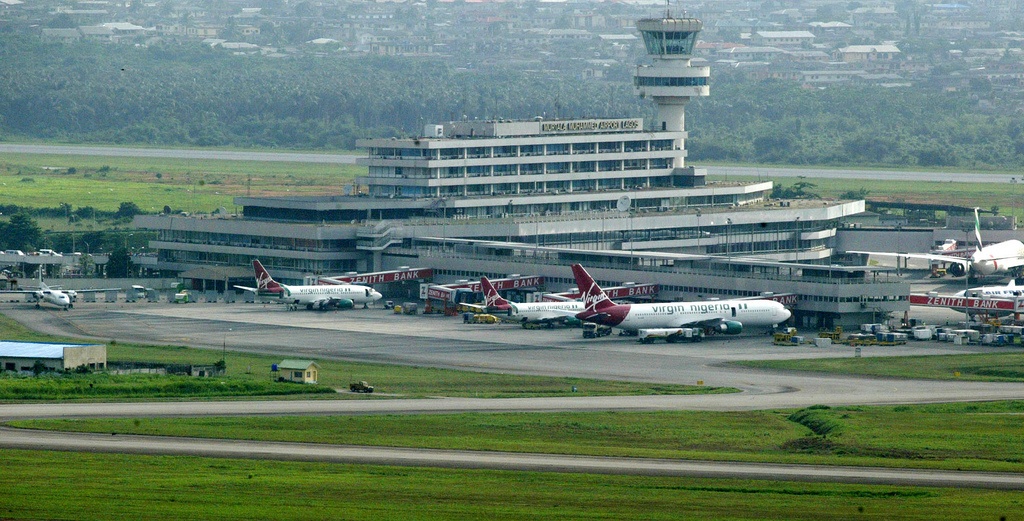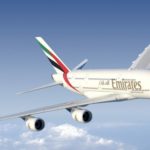 Aviation industry stakeholders have identified scarcity of foreign exchange, lack of maintenance facility and wrong aircraft usage as factors responsible for abandonment of aircraft by Nigerian airlines.
Aviation industry stakeholders have identified scarcity of foreign exchange, lack of maintenance facility and wrong aircraft usage as factors responsible for abandonment of aircraft by Nigerian airlines.
The stakeholders spoke in response to claim by the Minister of Aviation, Senator Hadi Sirika, recently, that Nigeria tops 10 countries with unserviceable aircraft.
The minister quoted CH Aviation to have stated that despite the small fleet Nigerian carriers have, they still topped the first 10 countries with unserviceable aircraft and attributed it to using old aircraft, equipment or airplanes not suitable for the routes they operate.
“According to CH aviation, Nigeria is topping the top 10 countries of unserviceable aircraft. That means our aircraft are not being utilised. The staggering figure is 69.23 per cent as of the time the research was made, which was currently 2021.
“Now, Nigeria is at the top and in the top 10, you have Germany which is 51.2 per cent, it includes UK, Argentina, Malasia etc. But within those times, the top most is Nigeria. And the reason is simple, one; they say it is capital, funding, to fund these airlines to be able to function well; to get the source of funding to be able to carry out the maintenance as at when due. You can park airplanes in Nigeria on the ground for an engine change, and it may stay there on the ground for many months,” the minister said.
However, reacting to the minister’s comment, aircraft engineer and CEO of Seven Star Global Hangar Limited, Isaac Balami told THISDAY, that no airline operator would buy an airplane and keep it on ground to rot, saying there are factors responsible for having Aircraft on Ground (AOG). He identified scarcity of foreign exchange as one of such.
He explained that an aircraft may have bird strike and needs an engine change but the airline would have the money in naira and would wait to exchange to dollars to get the needed spare, which might keep the aircraft on ground as long as the new engine is not acquired and fixed on the equipment.
Another factor he pointed out was airlines using wrong equipment in the sense that airline operators buy aircraft not suitable for the distance of the routes they operate, saying this leads to underutilisation of the aircraft, which might demand more money for maintenance than the money it is generating.
Balami also pointed out that Nigeria does not have Maintenance, Overhaul and Repair (MRO) facility that has the capacity for major maintenance of aircraft.
“Airlines acquire the wrong aircraft in terms of the routes they operate. If you operate the wrong aircraft, you will spend more money on engine overhaul. If you operate the right aircraft, you could break even with 40 per cent load factor.
“Then with wrong aircraft you spend more money on fuel. The engine rotation will not be maximized,” Balami said.
On his part, the CEO/Founder Topbrass Aviation Limited, Captain Roland Iyayi, also told THISDAY that to say that Nigeria tops 10 countries with unserviceable aircraft must be slightly exaggerated.
According to him, Nigeria does not have big fleet to warrant such positioning, saying it is rare for Nigeria to have abandoned aircraft, even though in the past, airlines had old aircraft which cost of maintenance could be so huge that it would be cheaper to abandon it and get another one.
“I doubt whether such is possible because fleet size of Nigerian airlines is small. What is the basis of the categorisation? I believe that it is exaggerated. We don’t have that large aircraft so that statistics is impossible. But I may not be disposed to comment on what the Minister said because I don’t know the basis in which Nigeria could be said to top 10 countries with unserviceable aircraft but it does not sound real to me,” he said.
The Managing Director, Flight and Logistics Solutions Limited, Amos Akpan told THISDAY that the report that Nigeria has highest place with abandoned unserviceable aircraft was a misrepresentation.
“It is statistically inaccurate to deposit that Nigeria ranks among the highest place where unserviceable aero planes are parked. I’d like the writers of that article to confirm if they have visited Arizona.
“Nigerian operators and regulators are very strict in keeping with maintenance records and timing on every machine in Nigerian register. How do I know this? Try bringing in a foreign registered aircraft to operate in Nigeria.
“You will find it difficult to keep up with what is required by NCAA (Nigerian Civil Aviation Authority) in terms of hours and calendered maintenance program. Most CAAs are more accommodating (not safety lapses) than Nigerian operators,” Akpan said.






